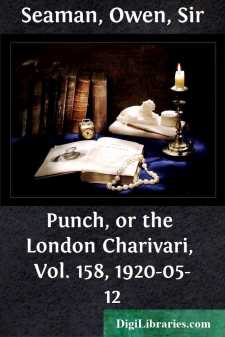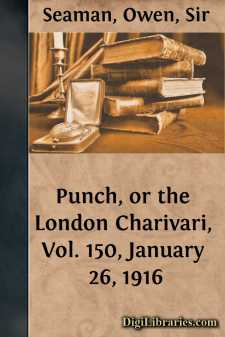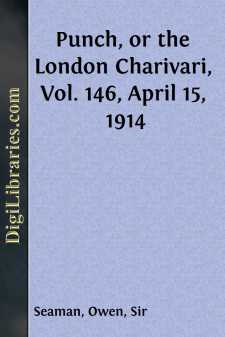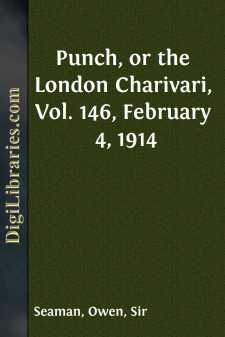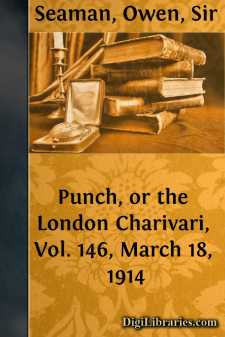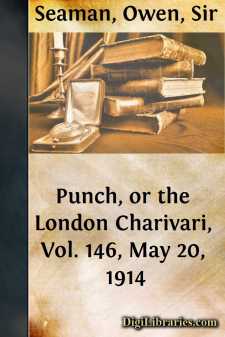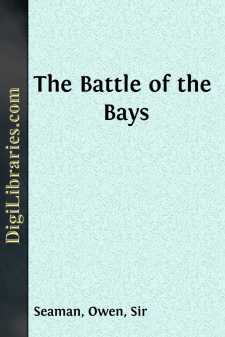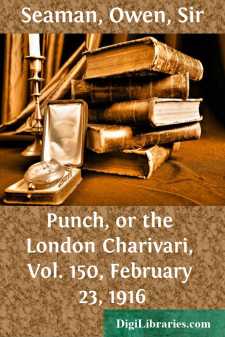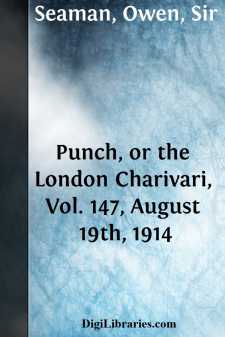Categories
- Antiques & Collectibles 13
- Architecture 36
- Art 48
- Bibles 22
- Biography & Autobiography 813
- Body, Mind & Spirit 142
- Business & Economics 28
- Children's Books 17
- Children's Fiction 14
- Computers 4
- Cooking 94
- Crafts & Hobbies 4
- Drama 346
- Education 46
- Family & Relationships 57
- Fiction 11829
- Games 19
- Gardening 17
- Health & Fitness 34
- History 1377
- House & Home 1
- Humor 147
- Juvenile Fiction 1873
- Juvenile Nonfiction 202
- Language Arts & Disciplines 88
- Law 16
- Literary Collections 686
- Literary Criticism 179
- Mathematics 13
- Medical 41
- Music 40
- Nature 179
- Non-Classifiable 1768
- Performing Arts 7
- Periodicals 1453
- Philosophy 64
- Photography 2
- Poetry 896
- Political Science 203
- Psychology 42
- Reference 154
- Religion 513
- Science 126
- Self-Help 84
- Social Science 81
- Sports & Recreation 34
- Study Aids 3
- Technology & Engineering 59
- Transportation 23
- Travel 463
- True Crime 29
Owen Seaman
Owen Seaman was a British writer and poet best known for his role as the editor of the satirical magazine Punch, which he helmed from 1906 to 1932. His early work included humorous verses and parodies, contributing significantly to the magazine's wit and literary charm. In recognition of his contributions to literature, Seaman was knighted in 1914.
Author's Books:
Sort by:
by:
Owen Seaman
May 12th, 1920. We are pleased to note that the King’s yacht Britannia is about again after being laid up since August, 1914. Smoking and chatting periods have been introduced in some Massachusetts factories. Extremists in this country complain that, while this system may be all right, there is just the danger that working periods might also be introduced. We are pleased to report that the eclipse of...
more...
by:
Owen Seaman
January 26, 1916. Some idea of the financial straits in which English people find themselves may be gathered from the statement that the first forced strawberries of the season fetched no more than ten shillings a pound. The Germans proudly point out that their forced loans fetched more than that. A kindly M.P. has suggested that our German naval prisoners should be employed in making the projected the...
more...
by:
Owen Seaman
APRIL 15, 1914. Reuter telegraphs from Melbourne that the Commonwealth building in London is to be called "Australia House." This should dispose effectively of the rumour that it was to be called "Canada House." "The Song of the Breakers," which is being advertised, is not, we are told, a war song for the Suffragettes. Some of the Press reported a recent happy event under the...
more...
by:
Owen Seaman
FEBRUARY 4, 1914. The statement, made at the inquiry into the Dublin strike riots, that 245 policemen were injured during the disturbances has, we hear, done much to allay the prevailing discontent among the belabouring classes. "Coaling the Stores" is a headline which caught our eye in a newspaper last week. To be followed, after the strike, we imagine, by "Storing the Coals." A...
more...
by:
Owen Seaman
March 18, 1914. In view of the grave importance of the present political situation, the price of Punch will remain as heretofore. "The risk of flying is very greatly exaggerated," says Mr. Winston Churchill. Then why funk a General Election? Some people have such a nasty way of putting things! Liberal gentleman to Unionist gentleman: "Well, have you taken the pledge?" Attempts are now...
more...
by:
Owen Seaman
May 20, 1914. It is comforting to know that we need not yet despair of human nature. Even the most abandoned politician may have one redeeming quality. For example, The Express tells us that Mr. Winston Churchill is a reader of The Express. It is reported to be the intention of General Botha to visit this country in June or July, and the Labour Party here are said to be already taking steps with a view...
more...
by:
Owen Seaman
1. A SONG OF RENUNCIATION. (AFTER A. C. S.) In the days of my season of salad, When the down was as dew on my cheek, And for French I was bred on the ballad, For Greek on the writers of Greek,–– Then I sang of the rose that is ruddy, Of ‘pleasure that winces and stings,’ Of white women and wine that is bloody, And similar things. Of Delight that is dear as Desi-er, And Desire that is...
more...
by:
Owen Seaman
February 23, 1916. The threatened shortage of paper has led a few unkind persons to enquire upon what our diplomatic victories are hereafter to be achieved. An interned German was recently given a week's freedom in which to get married, and the interesting question has now been raised as to whether his children, when they reach the age of twenty-one, will be liable to the Conscription Act or will...
more...
by:
Owen Seaman
THE NATURE OF A MORATORIUM. "It's a big ship" (I could overhear Ethel's voice through the open nursery window). "I know perfectly well it is. It's one of the Cunarders." "Well, you're quite wrong then," (this from Jack). "It was passed through Parliament. You can't pass a ship through Parliament." "It's the sister ship to the...
more...
by:
Owen Seaman
September 30, 1914. The German troops which started out for a "pleasure trip" to Paris are now reported, owing, no doubt, to the influence of British environment, to be taking their pleasures sadly. Several reasons have been given for the destruction of Rheims Cathedral. The real one is now said to be the following. Owing to the Red Cross Flag being flown from one of the towers the Germans...
more...


